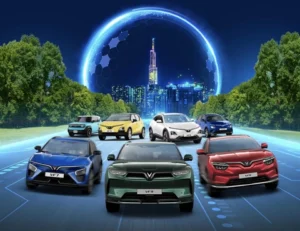Since the beginning of the year, many leaders of leading US technology corporations have visited Vietnam and expressed their desire to cooperate and invest. Bloomberg newspaper assessed that Vietnam is steadily attracting foreign investment capital and its capacity to produce high-tech equipment is increasingly improving…
Highly appreciating the geopolitics, human advantages and market potential, a series of leading US technology giants are showing their goodwill to invest capital to expand operations in Vietnam.
VIETNAM AND SILICON VALLEY HAVE AN INCREASINGLY DEEPEN RELATIONSHIP
Meta recently announced that it will expand production of one of its newest lines of mixed reality glasses in Vietnam. According to the Ministry of Planning and Investment, Meta’s plan is expected to create 1,000 jobs and contribute millions of dollars to the Vietnamese economy. As part of the commitment, Facebook’s parent company will also launch a credit-bearing artificial intelligence course starting next year at the National University.
“Vietnam continues to be an important country for Meta,” said Nick Clegg, President of Global External Affairs at Meta, during a visit to Vietnam in early October. “We are committed to supporting Vietnam in strengthening its digital leadership through the Government’s Industry 4.0 initiative. By unlocking growth opportunities and providing innovative products, Meta aims to contribute to the country’s economic prosperity and empower businesses to thrive in the digital age.”
Earlier this year, Apple also pledged to increase spending on suppliers in Vietnam. Since 2019, Apple has spent $15.7 billion on its supply chain in Vietnam, creating about 200,000 jobs.
Elon Musk’s SpaceX plans to invest up to $1.5 billion to develop satellite internet. Nvidia CEO Jensen Huang said Nvidia has many initiatives it wants to implement in Vietnam, including setting up a design center in Vietnam.
Meanwhile, Google is reportedly considering building a mega data center, according to Reuters. BigTech commitments this year have led Bloomberg to say that Silicon Valley’s relationship with Vietnam is deepening.
However, in reality, while Vietnam is still in the “crosshairs”, other countries in the region have received official commitments from some American giants. For example, Google announced that it would invest 1 billion USD in Thailand to build a data center and cloud. Or Google announced plans to invest 2 billion USD in sovereign cloud services in Malaysia, helping to create 26,500 jobs and contribute more than 3 billion USD to the country’s GDP by 2030.
NEED LONG-TERM STRATEGY TO IMPROVE TECHNOLOGY CAPACITY
World Bank data released on October 7 showed that investment growth has slowed in most Asian countries – with particularly sharp declines in China, Indonesia and Malaysia, but a relatively strong increase in Vietnam. This shows a positive signal from the investment market in Vietnam.
However, Bloomberg said that over-reliance on foreign investment and technology exports also makes Vietnam vulnerable to a decline in foreign demand and trade volatility. The World Bank recently warned that Vietnam’s role as a supply chain link amid global tensions “may be shrinking.”
This means that Vietnam must focus on itself, take advantage of opportunities from technology giants, Vietnam needs to have a long-term strategic plan, be ready to invest more in research and training of human resources, improve infrastructure and diversify the economy to improve its position.
In addition, infrastructure may become a barrier for Vietnam in attracting foreign technology investment, especially the power supply in northern Vietnam will face a shortage when emerging as the center of the new investment wave.
Previously, many international news sites reported that Vietnam had called on Apple supplier Foxconn to voluntarily reduce electricity usage by 30% at its assembly plants in the northern provinces. However, in response to this information, the leader of Bac Giang province affirmed that the information was incorrect and that the province had no policy to encourage Apple supplier Foxconn to voluntarily reduce electricity usage by 30% at its factories in the province.
















